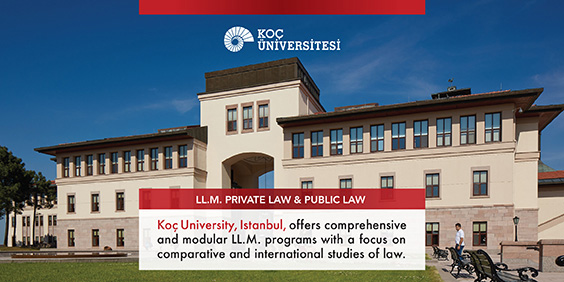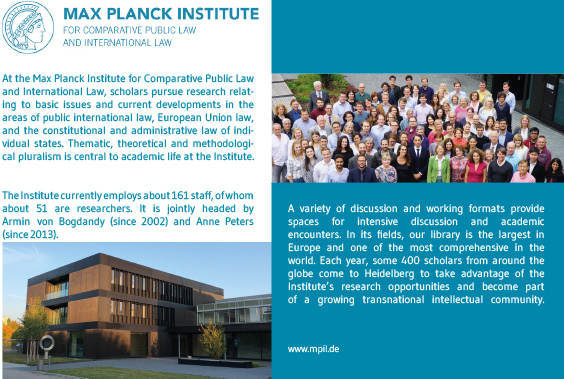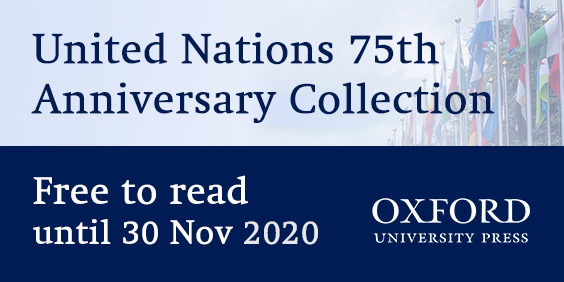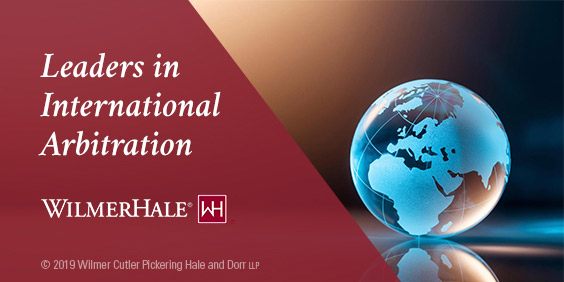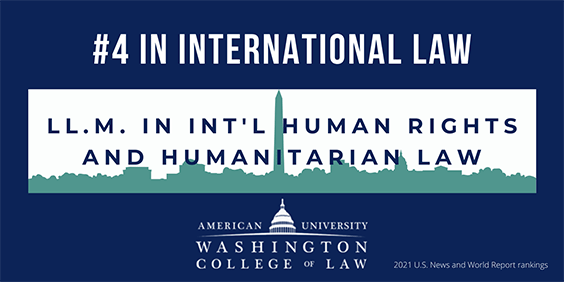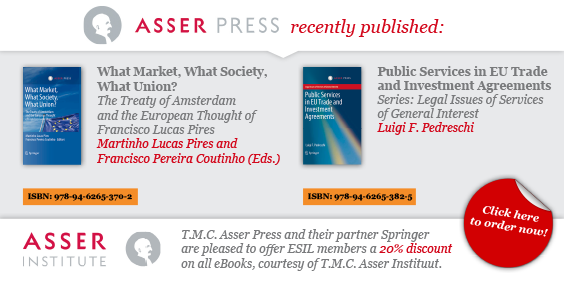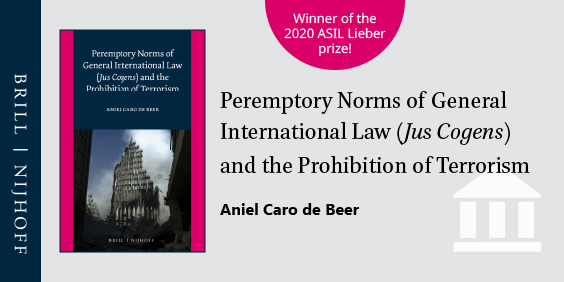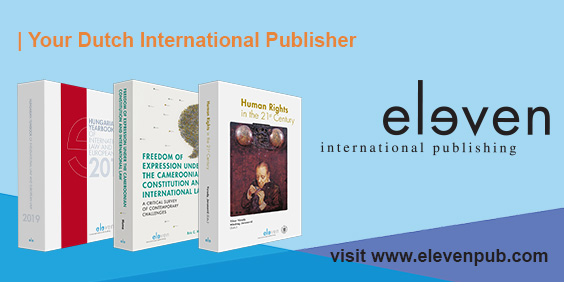Newsletter SEDI Septembre 2020
Editrice: Sandrine Maljean-Dubois (University of Aix-Marseille)
 Dans ce numéro
Dans ce numéro
- Message du Président
- Éditorial de l’invité par Stefania Negri: S’inspirer des accords multilatéraux sur l’environnement pour renforcer l’efficacité du Règlement sanitaire international (2005) : faut-il créer un Comité de conformité au RSI?
- Forum de la Recherche de la SEDI 2021
- Prix du livre de la SEDI
- Événements de la SEDI
- ESIL Reflections
- ESIL Teaching Corner
- Nouvelles des Groupes de Réflexion
1. Message du Président

Photini Pazartzis
We are moving towards autumn with the rushed beginnings of the academic year for most of us, but, as it appears, this autumn will be a different one, as the COVID-19 crisis has yet to subside. No one wants this to be the new ‘normalcy’, but we are now becoming accustomed to virtual teaching and gatherings, at least for the near future.
In this direction, the Society held some of its annual events virtually this September. While the 16th Annual Conference in Stockholm has been postponed to September 2021, the traditional ‘Current Events’ panel was held online on 10 September, with the theme: “COVID-19 and International Law: science, disinformation, exceptions and emergencies”, graciously organized by our colleagues in Stockholm and which attracted a large audience. A wide range of international law aspects of the current health crisis were discussed by two panels of distinguished speakers, and many of the themes broached will surely be fleshed out in time, and with perspective.
The Society also held its annual General Assembly, as well as the elections of Board members, virtually. Several new members were elected to join the Board for the next four years: Freya Baetens (University of Oslo), Adriana Di Stefano (University of Catania), Ana Salinas (University of Málaga), Christian Tams (University of Glasgow) and Catharine Titi (CNRS-CERSA, University of Paris II Panthéon-Assas). We warmly welcome the new members, along with Veronika Bílková and Pierre d’Argent, who were re-elected for another term. The Society can be proud of the geographical diversity and gender balance (tipping towards a majority of women…) and the entrance of new voices bringing new ideas. At the same time, let me express my sincere gratitude to the Board members who served the Society for years and whose mandate has ended: Luis Hinojosa (former President, Anne van Aacken (former Vice-President), Fulvio Palombino (former Vice-President), and Philippa Webb.
Warm autumnal wishes to all, and please remember to check the ESIL website for news and up-coming events.
Photini Pazartzis
ESIL President
2. Éditorial de l’invité – S’inspirer des accords multilatéraux sur l’environnement pour renforcer l’efficacité du Règlement sanitaire international (2005) : faut-il créer un Comité de conformité au RSI?
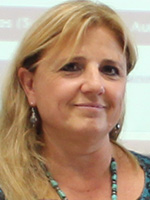
Stefania Negri
La propagation exponentielle de la COVID-19 dans le monde entier a souligné l’importance cruciale de déclarer et gérer les foyers de maladies infectieuses avec célérité, transparence, due diligence et bonne foi.
Ces principes devraient sans doute guider l’action des États conformément au Règlement sanitaire international (2005) (RSI), l’instrument global juridiquement contraignant adopté par l’Organisation Mondiale de la Santé (OMS) pour prévenir et limiter la propagation internationale des maladies transmissibles. En particulier, les articles 6 et 7 du RSI imposent des obligations fondamentales en matière de communication et de partage d’informations : les États Parties sont tenus d’évaluer et de notifier rapidement à l’OMS les événements extraordinaires pouvant constituer « une urgence de santé publique de portée internationale » ; ces événements doivent être signalés dans les 24 heures suivant leur détection par les systèmes nationaux de surveillance ; la notification doit être suivie d’une communication continue d’informations de santé publique rapides, exactes et suffisamment détaillées, y compris la description des cas, les résultats de laboratoire, la source et le type de risque, le nombre de cas et de décès, ainsi que les facteurs influant sur la propagation de la maladie. Le retard ou le non-respect de ces obligations peut contribuer à faire évoluer un foyer infectieux localisé vers une crise sanitaire potentiellement internationale ou, pire encore, vers une pandémie d’une ampleur imprévue susceptible de porter atteinte à la sécurité sanitaire mondiale.
Comme l’a montré la crise de la COVID-19, il n’est pas simple de tenir les États pour responsables de la violation des obligations du RSI et de régler les litiges consécutifs. Les outils offerts par le Règlement et la Constitution de l’OMS montrent leurs limites intrinsèques. Ainsi, le mécanisme de règlement des différends prévu à l’article 56 du RSI – jamais utilisé jusqu’à présent – repose essentiellement sur la négociation ou la résolution par le Directeur général, alors que le recours à des procédures contraignantes telles que l’arbitrage (au titre de la même disposition) ou l’introduction d’une instance devant la Cour internationale de Justice (en vertu de l’article 75 de la Constitution) risque de se heurter à la réticence à donner leur consentement des États présumés responsables.
Dans ce contexte, il est peut-être opportun d’explorer des solutions alternatives en s’inspirant des pratiques réussies expérimentées dans d’autres domaines du droit international. Comme je l’ai déjà suggéré, l’une des possibilités pourrait être l’établissement d’un Comité de conformité au RSI, à l’instar de procédures similaires établies par certains accords multilatéraux sur l’environnement. Ce comité d’experts indépendants pourrait être institué soit par l’Assemblée mondiale de la santé en vertu de l’article 18(l) de la Constitution de l’OMS, soit par le Conseil exécutif en vertu de l’article 38. Le Comité de conformité devrait faciliter, promouvoir et garantir le respect des dispositions du RSI, en vue également de prévenir les différends internationaux. Il devrait être chargé au moins de trois fonctions principales : surveiller et examiner la conformité au Règlement sur la base d’un renvoi par le Directeur général ou par le secrétariat du RSI, ou sur la base de communications présentées par les États tiers et les acteurs non-étatiques (suivant le modèle de l’article 9 du RSI) ; fournir conseils et assistance pour promouvoir le respect des obligations découlant du Règlement ; formuler des recommandations ou exercer des pouvoirs d’exécution par le biais de sanctions et d’autres mesures de nature politique destinées à faire pression sur les États en manquement.
Sans nécessairement exiger une modification du Règlement actuel, une telle procédure de conformité renforcerait le RSI et améliorerait son efficacité, tout en réaffirmant le rôle clé de l’OMS en tant qu’institution internationale essentielle pour régir sa mise en œuvre à l’échelle mondiale.
3. Forum de la Recherche de la SEDI 2021
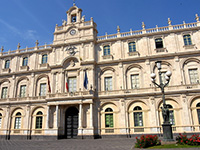
The University of Catania, Department of Law, will host the 2021 ESIL Research Forum “Solidarity: The Quest for Founding Utopias of International Law”. The Catania ESIL Research Forum aims at inspiring thoughtful reflections on the genealogy of international solidarity by focusing on the actors, norms and processes influencing its evolution over time.
The event will be held on April 15th and 16th, 2021. The final programme of the conference will be delivered shortly. Pre-conference events organised by the ESIL Interest Groups will take place in the morning of April 15th. Most notably, the Interest Groups on “History of International Law”, “International Economic Law”, “International Environmental Law”, “International Law of Culture”, “Migration and Refugee Law”, “Peace and Security” and “The EU as a Global Actor” confirmed their presence at the event.
All participants attending the ESIL Research Forum shall register by filling the registration form by March 15th, 2021. Organizers will keep all registered participants informed on the updated schedule of the Research Forum.
For assistance and information please visit the conference website or contact the local secretariat: 2021esil.rf.catania@lex.unict.it
4. Prix du livre de la SEDI
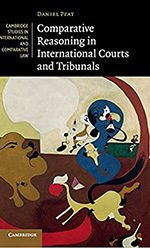
Philippa Webb (King’s College, London)
As announced by the ESIL President at the Annual General Meeting, the ESIL Book Prize for 2020 is awarded to Dr Daniel Peat for his monograph Comparative Reasoning in International Courts and Tribunals (CUP, 2019).
The jury composed of eminent international lawyers (Professors Erika De Wet, Mathias Forteau and Christian Walter) evaluated a wide range of books published in 2019 submitted for consideration by leading publishers. Their decision to award the prize to Dr Peat was unanimous. According to the jury, the book’s “main virtue is that it draws new conclusions which are discovered behind well-known general issues” and is “concise (a quality that the members of the jury found important) yet very substantial, innovative and highly stimulating”. They commend the book to the ESIL membership, noting that “it will provide any international lawyer with new insights and perspectives on core issues of general international law and will not doubt pave the way to future researches in the field.”
The ESIL Book Prize 2020 will be celebrated with a conversation among the jury members and Dr Peat to be held online on 2 October (registration details to be announced soon). EJIL: Talk! has recently hosted a symposium on the book. Congratulations Daniel!
5. Événements de la SEDI

On 10 September, ESIL and the Stockholm Centre for International Law and Justice (SCILJ) organised a very successful joint online event: ‘Covid-19 and international law: science and disinformation, exceptions and emergencies’. The event contained two panels:
Covid-19 and International Law: Science, Tech, Trolls and the Role of Information
- Gloria González Fuster (Vrije Universiteit Brussels)
- Marko Milanovic (Nottingham University)
- Jiří Přibáň (Cardiff University)
- Philippa Webb (moderator; King’s College, London)
Covid-19 and International Law: Emergencies, Exceptions and Regime Contestation
- Anne van Aaken (moderator; University of Hamburg)
- Gian Luca Burci (Geneva Academy)
- Jürgen Kurtz (European University Institute)
- Federica Paddeu (Cambridge University)
A video of the event is available on the SCILJ website and on the ESIL YouTube page.
6. ESIL Reflections
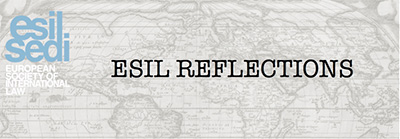 ESIL Reflections are short papers published on the website of the European Society of International Law (ESIL). ESIL Reflections offer up-to-date reflections on current issues in international law. The Reflections are now in their sixth year, covering a wide range of topics relating to current developments in international law and practice as well as theoretical reflections in a way that is relatively accessible to non-experts. The aim is to foster discussion between ESIL members and international law scholars and practitioners more generally – in Europe, but also beyond. ESIL Reflections are published online and distributed freely to ESIL members.
ESIL Reflections are short papers published on the website of the European Society of International Law (ESIL). ESIL Reflections offer up-to-date reflections on current issues in international law. The Reflections are now in their sixth year, covering a wide range of topics relating to current developments in international law and practice as well as theoretical reflections in a way that is relatively accessible to non-experts. The aim is to foster discussion between ESIL members and international law scholars and practitioners more generally – in Europe, but also beyond. ESIL Reflections are published online and distributed freely to ESIL members.
The editors are Federico Casolari, Patrycja Grzebyk, Ellen Hey, Guy Sinclair and Ramses Wessel (editor-in-chief).
ESIL Reflections are short papers (3000-4000 words) that argue one particular point that may trigger further debate in the scientific community. Extensive referencing is to be avoided. References are only necessary in case of direct citations or when new or less well-known works are mentioned.
Latest publications are:
- International Law in an Age of Post-Shame by Fuad Zarbiyev
- States’ Resilience to Future Health Emergencies – Connecting the Dots between Core Obligations and Core Capacities by Brigit Toebes
- Due Diligence and Extraterritorial Human Rights Obligations – Mind the Gap! by Samantha Besson
7. ESIL Teaching Corner
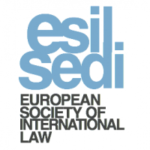 We warmly invite all Members to peruse and to contribute to the ESIL Teaching Corner, an online resource developed so that ESIL members can share syllabi, module outlines, reading lists, and other international law teaching tools. We have developed the Teaching Corner to encourage the dissemination of good practices, and especially to provide support for early career researchers who may be designing a course for the first time.
We warmly invite all Members to peruse and to contribute to the ESIL Teaching Corner, an online resource developed so that ESIL members can share syllabi, module outlines, reading lists, and other international law teaching tools. We have developed the Teaching Corner to encourage the dissemination of good practices, and especially to provide support for early career researchers who may be designing a course for the first time.
Of course, whomever wishes to find some inspiration on the teaching of international law is warmly welcome. By seeing the innovations and ideas of others, we hope to nurture and inspire innovative teaching both in Europe and beyond. You will find materials here that might prove innovative or useful both in relation to substance as well as form, for example, in relation to assessment, or how to structure a course relating to international law mooting. During this particular pandemic, in particular, much inspiration can be drawn from others’ shift to online or blended learning.
To take a look at the Teaching Corner, go to the ESIL website https://esil-sedi.eu/ and click on the right-hand tab:
You can log in with these credentials:
- User: ESILmember
- Password: TCESIL2019!
Once in the Teaching Corner, please select the ‘Add Course’ option from the drop-down menu and fill in the online form. Your syllabus will then go to the editors of the Teaching Corner and will be added to the ESIL Teaching Corner within a few days. To see what’s already in the Teaching Corner, go to ‘Search Course’, fill in the relevant criteria, and click on ‘search’.
7. Nouvelles des Groupes de Réflexion
 ESIL Interest Groups are a vital part of the Society’s success and activities. A list of the groups is available on the ESIL website. Reports of recent activities and upcoming events are available in the full text of the Newsletter.
ESIL Interest Groups are a vital part of the Society’s success and activities. A list of the groups is available on the ESIL website. Reports of recent activities and upcoming events are available in the full text of the Newsletter.
 Interest Group on International Law of Culture
Interest Group on International Law of CultureThe IG on International Law of Culture held its first full online workshop on 9 September 2020, on ‘15 years of the Convention for the Protection and Promotion of the Diversity of Cultural Expressions and Lessons for New Ways of International Law-Making: Actors, Processes, Impact’. The workshop was composed of eight speakers and dozens of participants from every region of the world. In line with our virtual setting, speakers discussed broadening participation in cultural expressions governance across virtual and e-commerce environments, as well as the matter of civil society participation and the relationship between cultural rights and international trade in the Convention, which has 149 parties, including the European Union.
